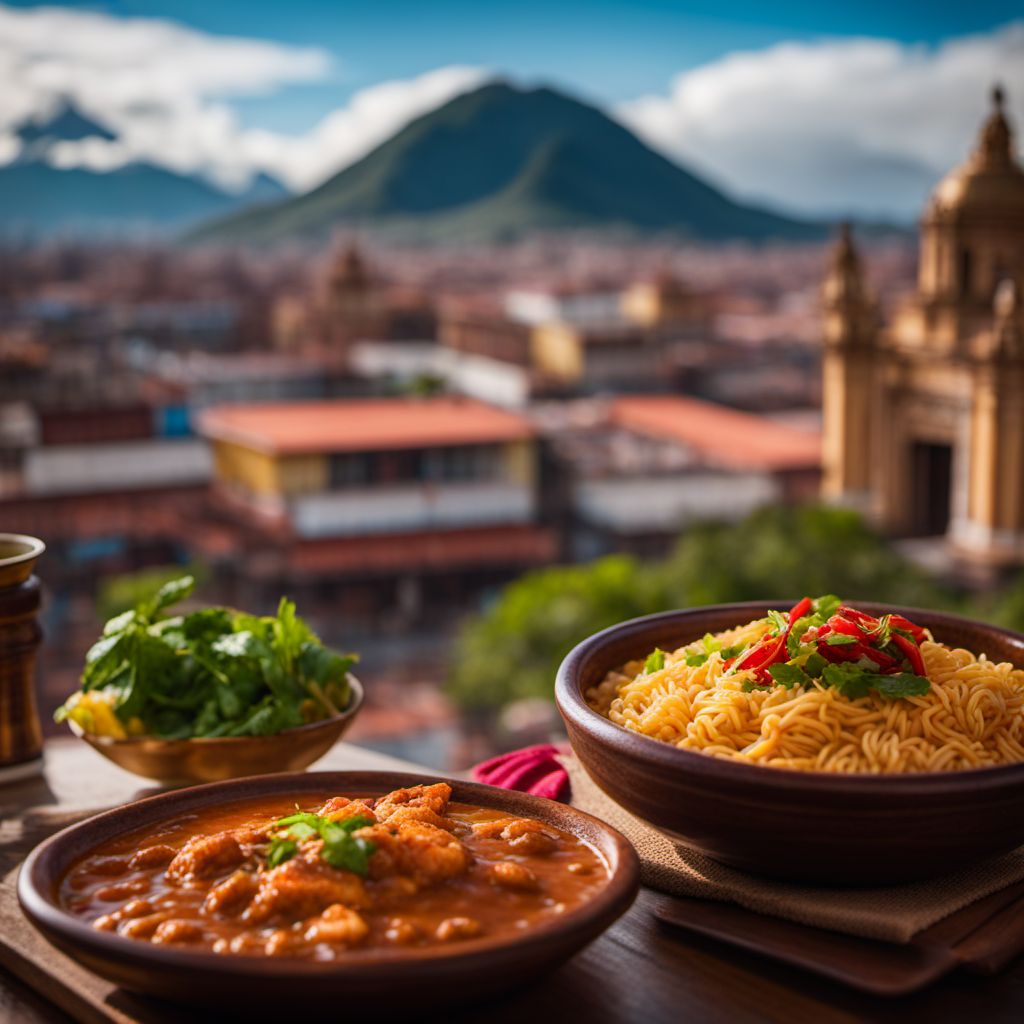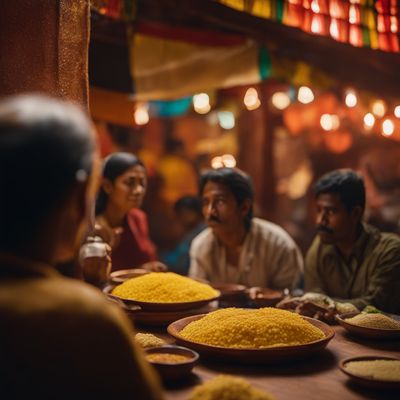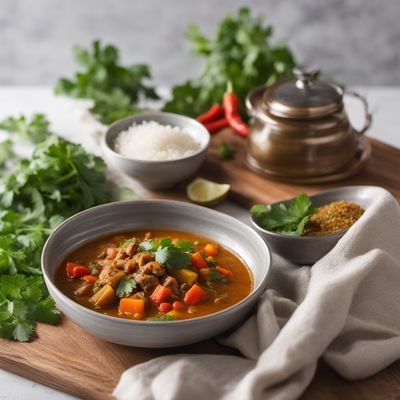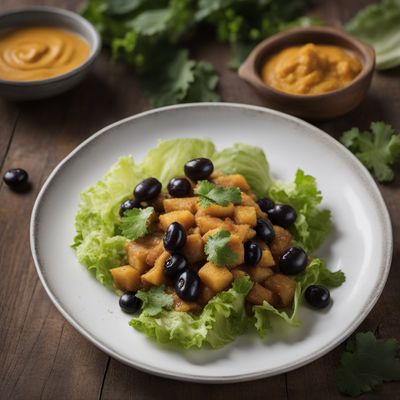
Cuisine
Bolivian cuisine
Bolivian cuisine is characterized by its use of indigenous ingredients like potatoes and corn, as well as Spanish influences like meat and dairy products. Hearty stews and soups are a staple of Bolivian cuisine, and are often made with meat, vegetables, and grains. Bolivian cuisine is also known for its use of herbs and spices like cumin, coriander, and oregano.
Typical ingredients
Potatoes, Corn, Quinoa, Beans, Rice, Beef, Chicken, Pork, Lamb, Fish, Tomatoes, Peppers, Onions, Garlic, Cumin, Coriander, Oregano
Presentation and garnishing
Bolivian dishes are often served with rice and potatoes, and are garnished with fresh herbs and lime wedges. Hearty stews like puchero and chairo are popular main courses, and are often made with meat, vegetables, and grains. Salteñas are a popular snack or appetizer, and are similar to empanadas.
Bolivia is home to the largest salt flat in the world, the Salar de Uyuni. The country is also known for its textiles, particularly the brightly colored weavings of the Aymara and Quechua people.
More cuisines from this region...
Brazilian cuisine, Argentinian cuisine, Colombian cuisine, Peruvian cuisine, Venezuelan cuisine, Chilean cuisine, Ecuadorian cuisine, Paraguayan cuisine, Surinamese cuisine, Uruguayan cuisine
History
Bolivian cuisine has a long history dating back to pre-Columbian times. The indigenous people of Bolivia developed sophisticated agricultural techniques, and their diet included a wide variety of plants and animals. With the arrival of the Spanish in the 16th century, new ingredients like wheat, rice, and livestock were introduced. Today, Bolivian cuisine continues to evolve and adapt to new influences.
Cultural significance
Bolivian cuisine is an important part of the country's cultural identity. It is often served at festivals and celebrations, and is a source of national pride. The cuisine also reflects the country's diverse population and history.
Health benefits and considerations
Bolivian cuisine is generally healthy, with an emphasis on fresh ingredients and hearty stews and soups. However, some dishes can be high in calories and fat, particularly those that are fried or served with rich sauces. It is important to practice moderation and balance when enjoying Bolivian cuisine.
Bolivian cuisine dishes Browse all »

Pique macho
Pique Macho
Pique macho is a Bolivian dish made with beef, sausage, and potatoes that is typically served as a main course.

Plato paceño
Potato and Cheese Casserole
Plato paceño is a traditional Bolivian dish that is popular in the city of La Paz. It is a hearty and filling meal that is perfect for cold weather.

Majadito
Majadito is a traditional Bolivian dish that is made with rice, beef, and spices. It is a hearty and flavorful meal that is perfect for any occasion.

Chochoca
Chochoca is a traditional Ecuadorian dish made with roasted corn and cheese.

Chairo
Peanut soup
Chairo is a traditional soup from Bolivia that is made with beef, potatoes, corn, and vegetables. It is a hearty and filling dish that is perfect for cold weather.

Estofado con papas
Beef and potato stew
Estofado con papas is a hearty and flavorful stew that originates from the Philippines. It is a popular dish among meat lovers and is known for its rich and savory flavor.

Silpancho
Silpancho is a traditional Bolivian dish that is made with thin slices of beef that are breaded and fried until crispy. The beef is typically served on a bed of rice and topped...

Chapanas
Chapanas are a traditional Bolivian snack made from cornmeal and cheese.
Bolivian cuisine recipes Browse all »

Bolivian Yuba Stew
Andean Delight: Bolivian Yuba Stew

Spicy Bolivian Tomato and Chili Sauce
Fiery Llajua: A Taste of Bolivian Spice

Bolivian-inspired Vasina Torta
Andean Delight: Bolivian-inspired Vasina Torta

Bolivian-style Pollo al Cognac
Cognac-infused Bolivian Chicken Delight

Bolivian Pique Macho
Andean Delight: Bolivian Pique Macho

Bolivian Chicken Stew with Potatoes and Peanuts
Andean Delight: A Flavorful Bolivian Chicken Stew

Bolivian-style Sweet Fritters
Delicious Bolivian Fritters: A Sweet Treat from the Andes

Bolivian-style Papas a la Huancaina
Andean Delight: Bolivian-style Spicy Cheese Potatoes

Bolivian Sabaayad: Flaky Bolivian Flatbread
Andean Delight: Bolivian-Inspired Flaky Flatbread

Bolivian Beef Stew with Potatoes
Andean Delight: Hearty Bolivian Beef Stew with Potatoes

Bolivian-Inspired Carne Gobernada with Spiced Rice
Savory Bolivian Beef Stew with Fragrant Spiced Rice

Silpancho with a Twist
Bolivian Delight: Silpancho with a Modern Twist